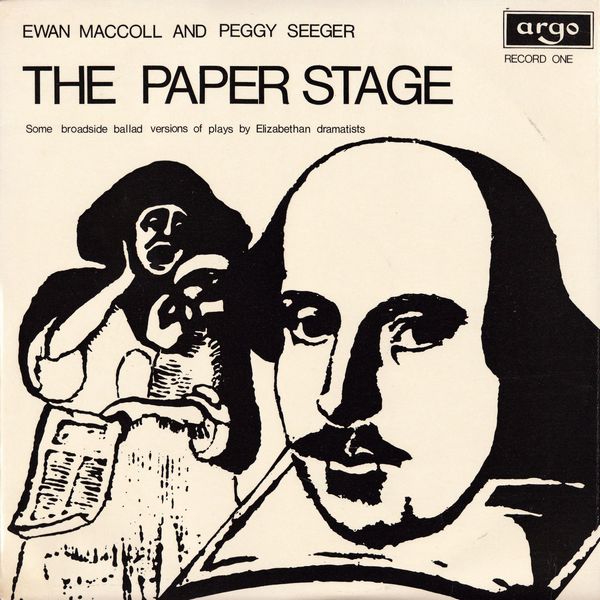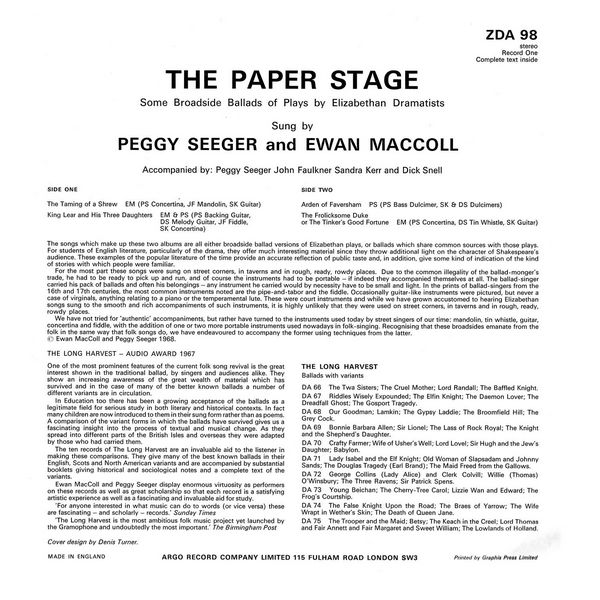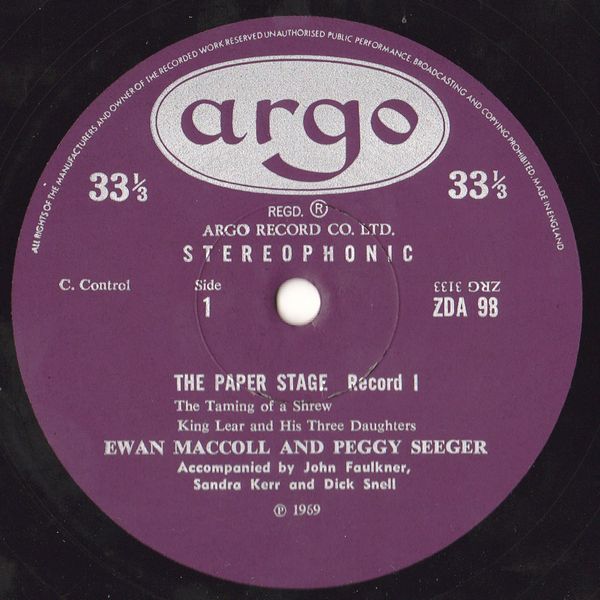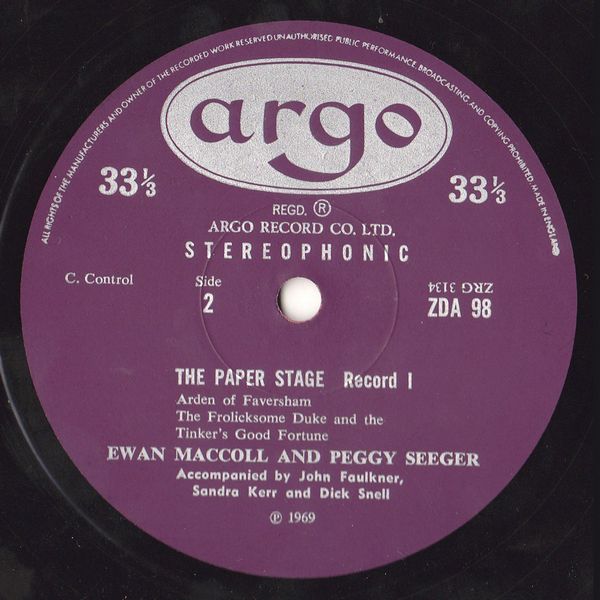

 |


 |
Sleeve Notes
The songs which make up these two albums are all either broadside ballad versions of Elizabethan plays, or ballads which share common sources with those plays. For students of English literature, particularly of the drama, they offer much interesting material since they throw additional light on the character of Shakespeare's audience. These examples of the popular literature of the time provide an accurate reflection of public taste and, in addition, give some kind of indication of the kind of stories with which people were familiar.
For the most part these songs were sung on street corners, in taverns and in rough, ready, rowdy places. Due to the common illegality of the ballad-monger's trade, he had to be ready to pick up and run, and of course the instruments had to be portable — if indeed they accompanied themselves at all. The ballad-singer carried his pack of ballads and often his belongings — any instrument he carried would by necessity have to be small and light. In the prints of ballad-singers from the 16th and 17th centuries, the most common instruments noted are the pipe-and-tabor and the fiddle. Occasionally guitar-like instruments were pictured, but never a case of virginals, anything relating to a piano or the temperamental lute. These were court instruments and while we have grown accustomed to hearing Elizabethan songs sung to the smooth and rich accompaniments of such instruments, it is highly unlikely that they were used on street corners, in taverns and in rough, ready, rowdy places.
We have not tried for 'authentic' accompaniments, but rather have turned to the instruments used today by street singers of our time: mandolin, tin whistle, guitar, concertina and fiddle, with the addition of one or two more portable instruments used nowadays in folk-singing. Recognising that these broadsides emanate from the folk in the same way that folk songs do, we have endeavoured to accompany the former using techniques from the latter.
© Ewan MacColl and Peggy Seeger — 1968.
THE LONG HARVEST — AUDIO AWARD 1967
One of the most prominent features of the current folk song revival is the great interest shown in the traditional ballad, by singers and audiences alike. They show an increasing awareness of the great wealth of material which has survived and in the case of many of the better known ballads a number of different variants are in circulation.
In Education too there has been a growing acceptance of the ballads as a legitimate field for serious study in both literary and historical contexts. In fact many children are now introduced to them in their sung form rather than as poems. A comparison of the variant forms in which the ballads have survived gives us a fascinating insight into the process of textual and musical change. As they spread into different parts of the British Isles and overseas they were adapted by those who had carried them.
The ten records of The Long Harvest are an invaluable aid to the listener in making these comparisons. They give many of the best known ballads in their English, Scots and North American variants and are accompanied by substantial booklets giving historical and sociological notes and a complete text of the variants.
Ewan MacColl and Peggy Seeger display enormous virtuosity as performers on these records as well as great scholarship so that each record is a satisfying artistic experience as well as a fascinating and invaluable aid for study.
'For anyone interested in what music can do to words (or vice versa) these are fascinating — and scholarly — records.' Sunday Times
The Long Harvest is the most ambitious folk music project yet launched by the Gramophone and undoubtedly the most important.' The Birmingham Post